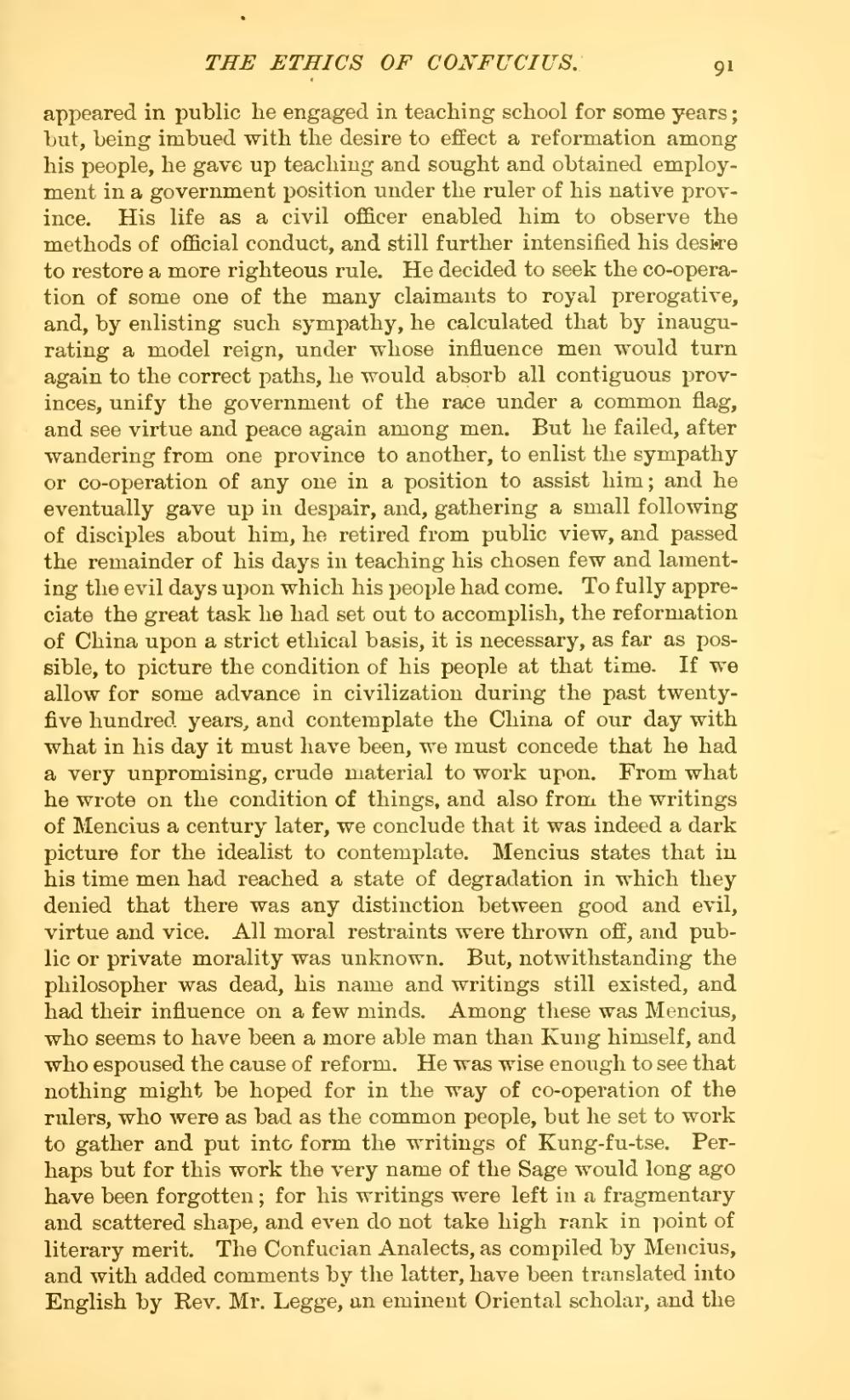appeared in public he engaged in teaching school for some years; but, being imbued with the desire to effect a reformation among his people, he gave up teaching and sought and obtained employment in a government position under the ruler of his native province. His life as a civil officer enabled him to observe the methods of official conduct, and still further intensified his desire to restore a more righteous rule. He decided to seek the co-operation of some one of the many claimants to royal prerogative, and, by enlisting such sympathy, he calculated that by inaugurating a model reign, under whose influence men would turn again to the correct paths, he would absorb all contiguous provinces, unify the government of the race under a common flag, and see virtue and peace again among men. But he failed, after wandering from one province to another, to enlist the sympathy or co-operation of any one in a position to assist him; and he eventually gave up in despair, and, gathering a small following of disciples about him, he retired from public view, and passed the remainder of his days in teaching his chosen few and lamenting the evil days upon which his people had come. To fully appreciate the great task he had set out to accomplish, the reformation of China upon a strict ethical basis, it is necessary, as far as possible, to picture the condition of his people at that time. If we allow for some advance in civilization during the past twenty-five hundred years, and contemplate the China of our day with what in his day it must have been, we must concede that he had a very unpromising, crude material to work upon. From what he wrote on the condition of things, and also from the writings of Mencius a century later, we conclude that it was indeed a dark picture for the idealist to contemplate. Mencius states that in his time men had reached a state of degradation in which they denied that there was any distinction between good and evil, virtue and vice. All moral restraints were thrown off, and public or private morality was unknown. But, notwithstanding the philosopher was dead, his name and writings still existed, and had their influence on a few minds. Among these was Mencius, who seems to have been a more able man than Kung himself, and who espoused the cause of reform. He was wise enough to see that nothing might be hoped for in the way of co-operation of the rulers, who were as bad as the common people, but he set to work to gather and put into form the writings of Kung-fu-tse. Perhaps but for this work the very name of the Sage would long ago have been forgotten; for his writings were left in a fragmentary and scattered shape, and even do not take high rank in point of literary merit. The Confucian Analects, as compiled by Mencius, and with added comments by the latter, have been translated into English by Rev. Mr. Legge, an eminent Oriental scholar, and the
Page:Popular Science Monthly Volume 40.djvu/101
Appearance

